Abstract
DNA probes (Gen-Probe, San Diego, Calif.) directed at the Mycobacterium tuberculosis complex and Mycobacterium avium-M. intracellulare complex were used to identify acid-fast bacilli directly from specimens grown in BACTEC 12B bottles (Becton Dickinson and Co., Towson, Md.). Clinical specimens were inoculated directly or after decontamination into a BACTEC 12B bottle, Middlebrook 7H11 agar, and Lowenstein-Jensen medium. Conventional media were incubated at 37 degrees C in 5% CO2 and examined weekly for 6 weeks. Identification of isolates grown on conventional media by standard biochemicals, morphology, and growth characteristics served as the reference method for identification. BACTEC bottles were incubated at 37 degrees C, and a growth index was taken twice a week. When a growth index of greater than or equal to 100 was reached, 1 ml of BACTEC 12B medium was put into each of three microfuge tubes which were centrifuged for 15 min at 15,000 x g. Pellets were used in hybridization reactions with an M. tuberculosis complex probe, an M. avium probe, and an M. intracellulare probe. The results of the hybridizations of the three probes with the same sample were compared, and the highest percent hybridization was divided by the average of the lower hybridization values. If this value, the derived patient ratio (DPR), was greater than or equal to 3, then the specimen was considered positive for the organism giving the highest percent hybridization. Of the 1,988 specimens cultured, the results of conventional tests for the 190 conventional culture-positive specimens were 64 M. tuberculosis, 61 M. avium, 14 M. intracellulare, 30 other Mycobacterium spp., and 25 non-acid-fast bacilli. There were four cultures that each contained two different Mycobacterium spp. Directly probing the BACTEC 12B sediment, at DPR of >/= 3 the M. tuberculosis probe identified 83% (53 of 64) of M. tuberculosis isolates, the M. avium probe identified 92% (56 of 61) M. avium isolates, and the M. intracellulare probe identified 86% (12 of 14) of M. intracellulare isolates. There were no false-positive results at this DPR level. The false-negative results from probing the sediment from the BACTEC 12B bottle could not solely be attributed to the number of organisms present, the growth index, or antimicrobial therapy.
Full text
PDF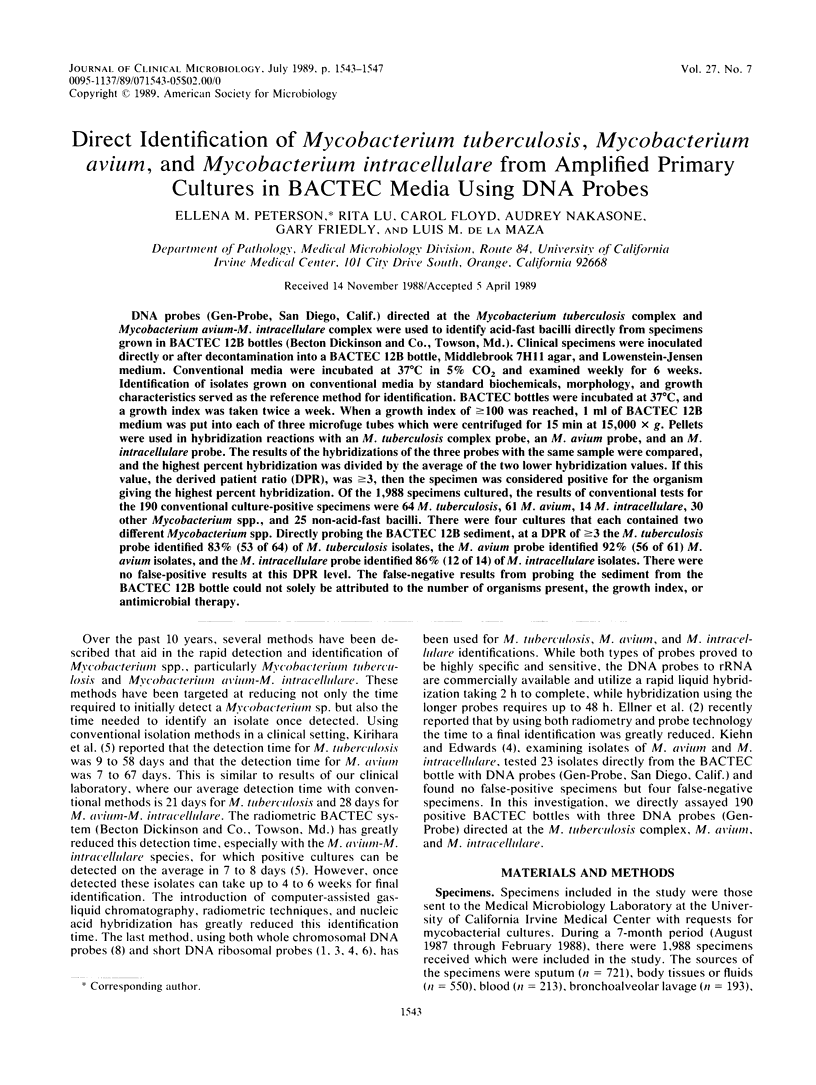
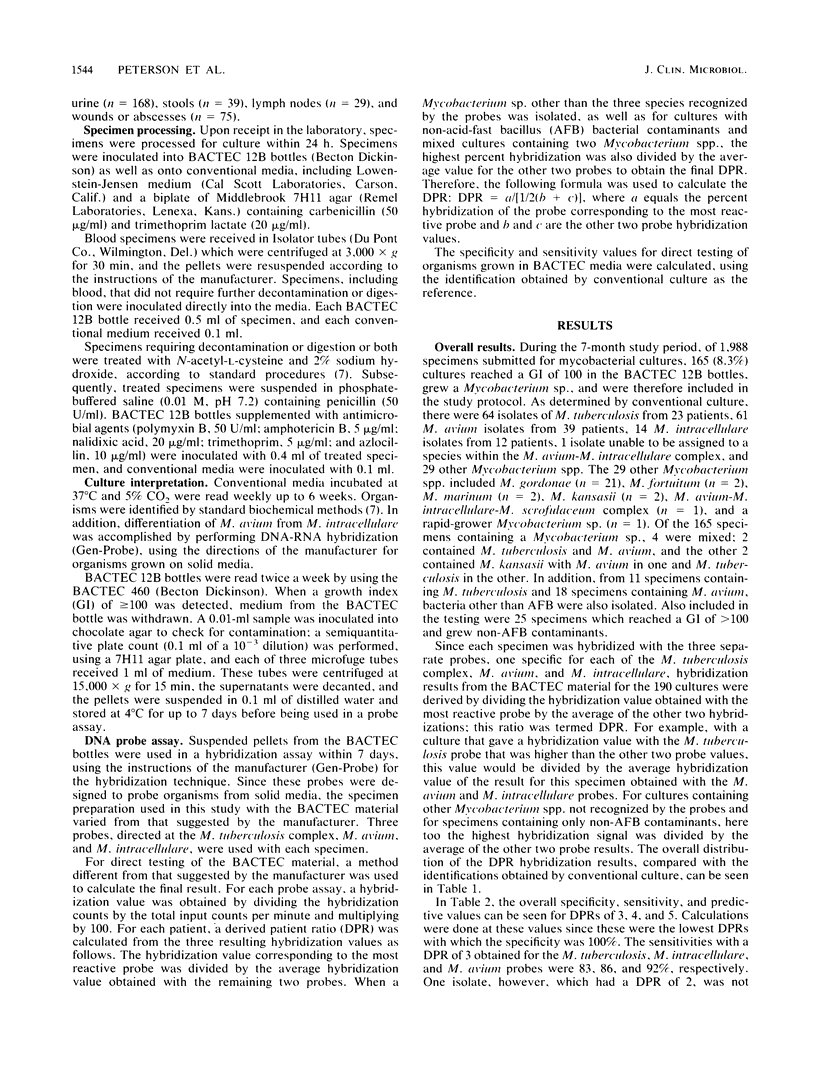
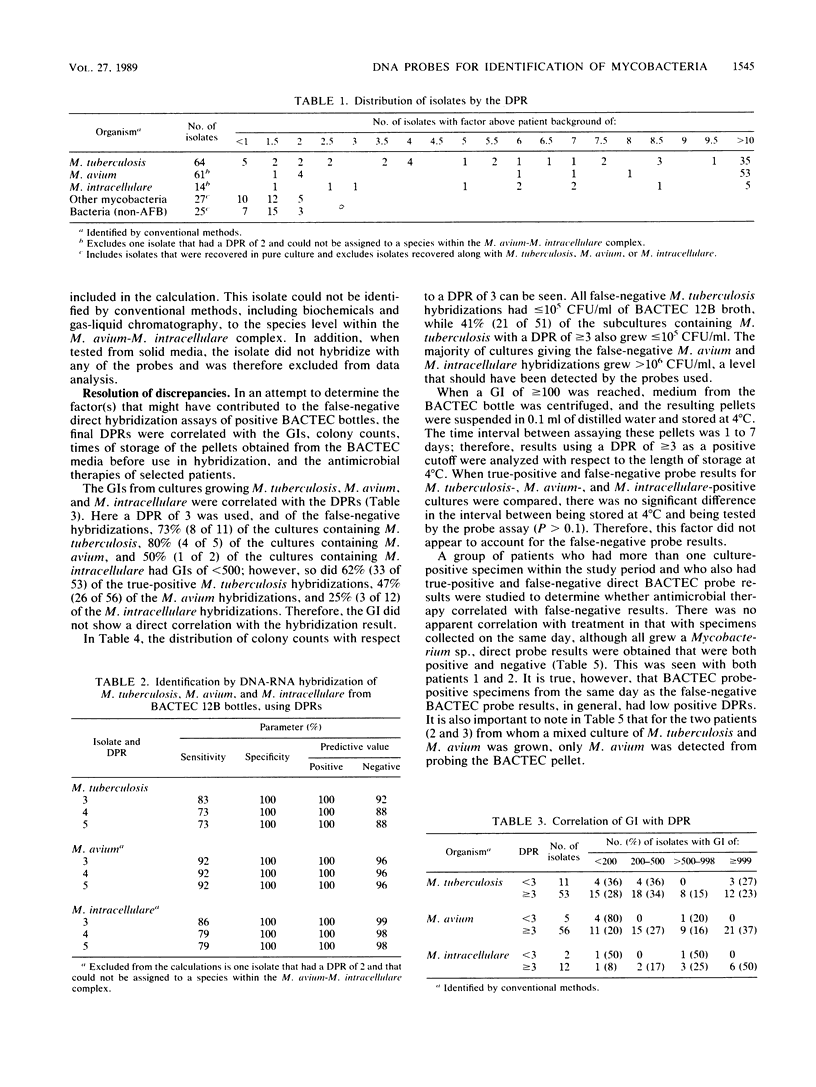
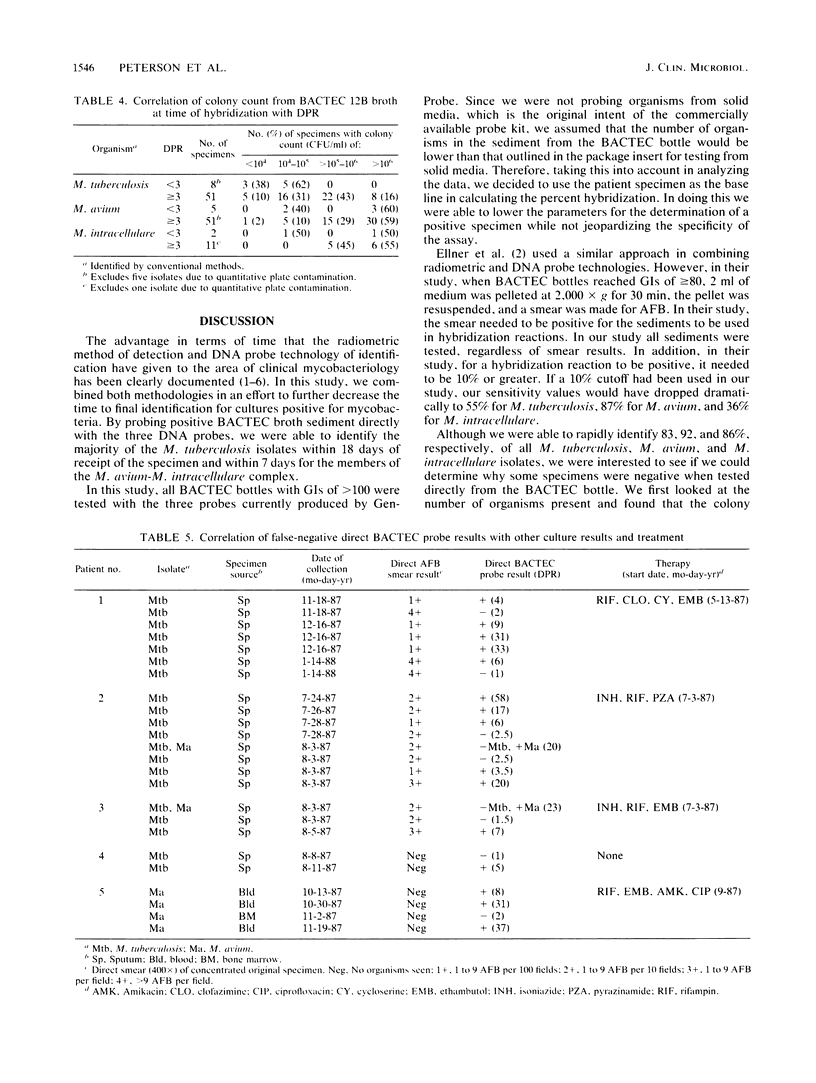
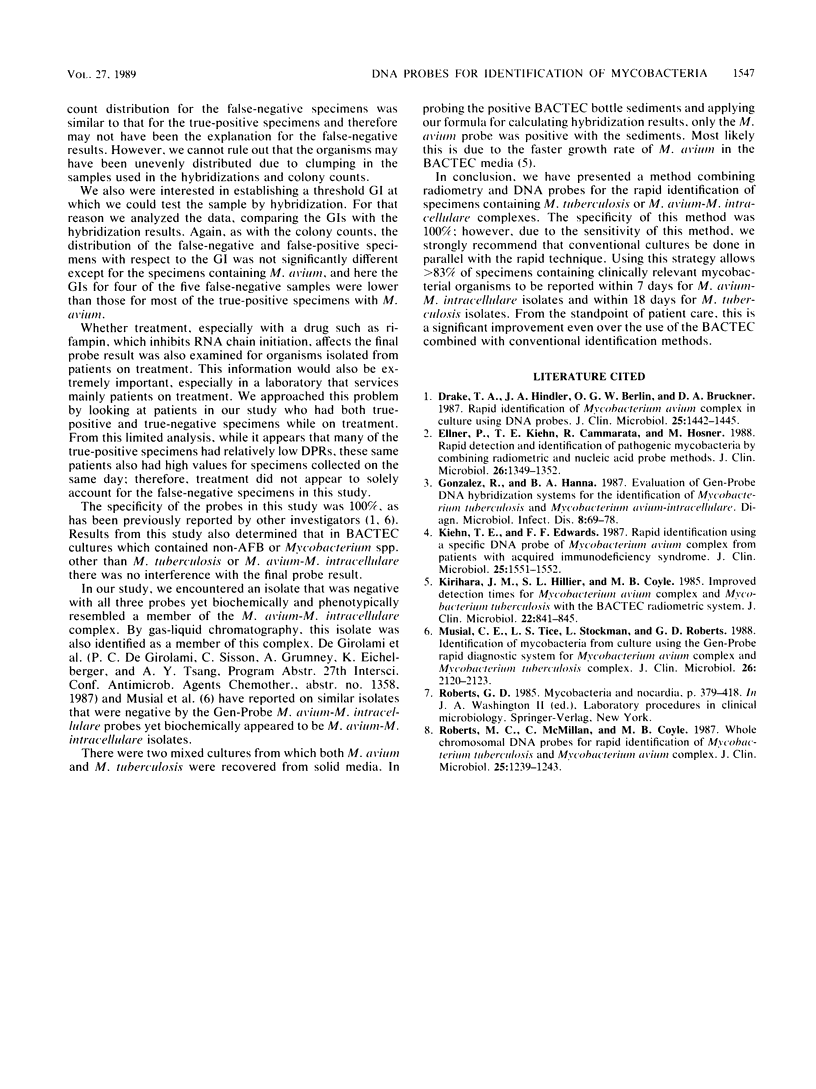
Selected References
These references are in PubMed. This may not be the complete list of references from this article.
- Drake T. A., Hindler J. A., Berlin O. G., Bruckner D. A. Rapid identification of Mycobacterium avium complex in culture using DNA probes. J Clin Microbiol. 1987 Aug;25(8):1442–1445. doi: 10.1128/jcm.25.8.1442-1445.1987. [DOI] [PMC free article] [PubMed] [Google Scholar]
- Ellner P. D., Kiehn T. E., Cammarata R., Hosmer M. Rapid detection and identification of pathogenic mycobacteria by combining radiometric and nucleic acid probe methods. J Clin Microbiol. 1988 Jul;26(7):1349–1352. doi: 10.1128/jcm.26.7.1349-1352.1988. [DOI] [PMC free article] [PubMed] [Google Scholar]
- Gonzalez R., Hanna B. A. Evaluation of Gen-Probe DNA hybridization systems for the identification of Mycobacterium tuberculosis and Mycobacterium avium-intracellulare. Diagn Microbiol Infect Dis. 1987 Oct;8(2):69–77. doi: 10.1016/0732-8893(87)90152-0. [DOI] [PubMed] [Google Scholar]
- Kiehn T. E., Edwards F. F. Rapid identification using a specific DNA probe of Mycobacterium avium complex from patients with acquired immunodeficiency syndrome. J Clin Microbiol. 1987 Aug;25(8):1551–1552. doi: 10.1128/jcm.25.8.1551-1552.1987. [DOI] [PMC free article] [PubMed] [Google Scholar]
- Kirihara J. M., Hillier S. L., Coyle M. B. Improved detection times for Mycobacterium avium complex and Mycobacterium tuberculosis with the BACTEC radiometric system. J Clin Microbiol. 1985 Nov;22(5):841–845. doi: 10.1128/jcm.22.5.841-845.1985. [DOI] [PMC free article] [PubMed] [Google Scholar]
- Musial C. E., Tice L. S., Stockman L., Roberts G. D. Identification of mycobacteria from culture by using the Gen-Probe Rapid Diagnostic System for Mycobacterium avium complex and Mycobacterium tuberculosis complex. J Clin Microbiol. 1988 Oct;26(10):2120–2123. doi: 10.1128/jcm.26.10.2120-2123.1988. [DOI] [PMC free article] [PubMed] [Google Scholar]
- Roberts M. C., McMillan C., Coyle M. B. Whole chromosomal DNA probes for rapid identification of Mycobacterium tuberculosis and Mycobacterium avium complex. J Clin Microbiol. 1987 Jul;25(7):1239–1243. doi: 10.1128/jcm.25.7.1239-1243.1987. [DOI] [PMC free article] [PubMed] [Google Scholar]


